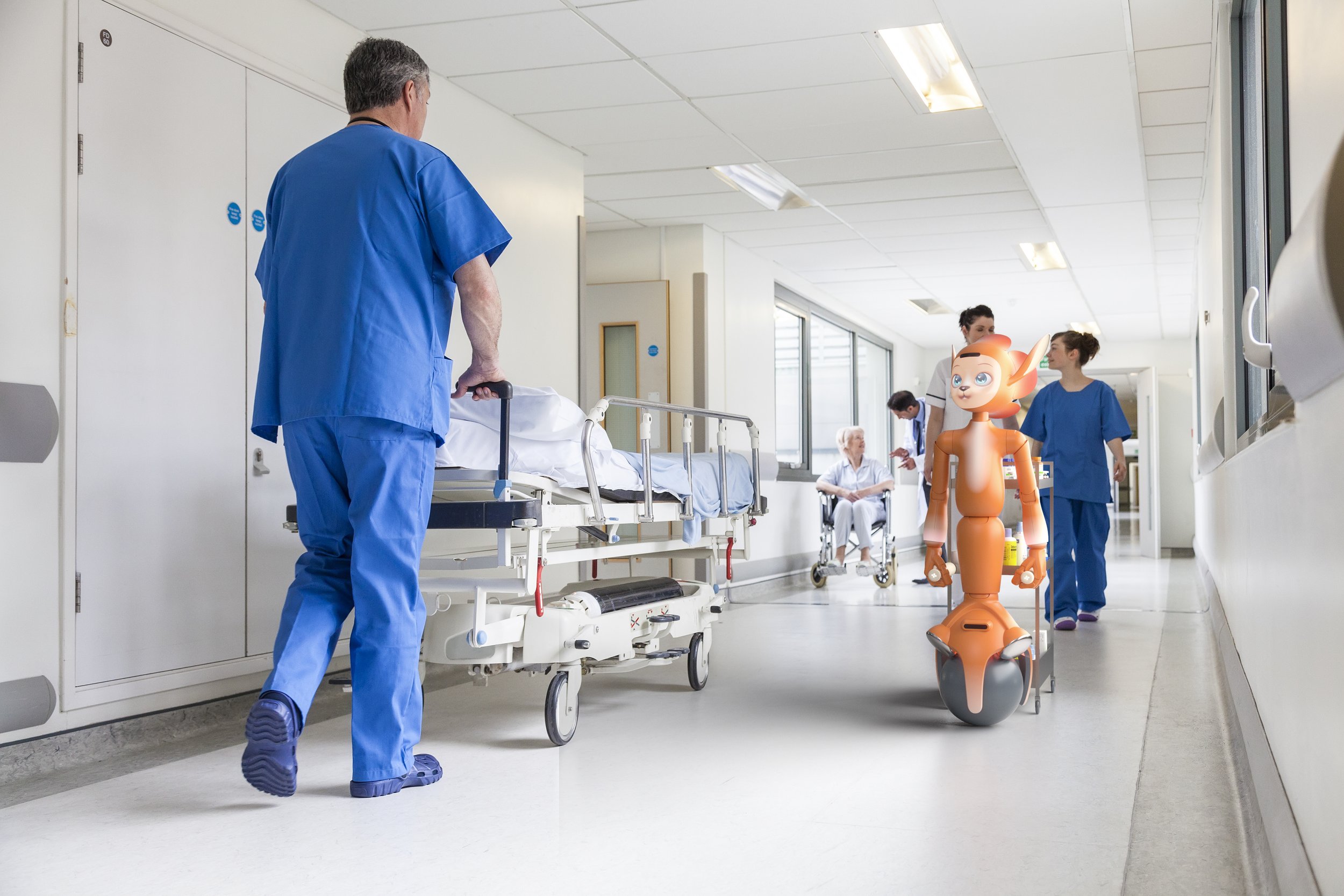
robotics and health
Humanoid robots in the security sector provide an improved level of surveillance, better analysis capability and reduced costs, while limiting the risks to human personnel.
-
Patient care assistance :
Humanoid robots can help patients with everyday tasks such as getting out of bed, moving around and taking their medication, freeing up caregivers' time for more complex care. They provide invaluable assistance, particularly for the elderly or patients undergoing rehabilitation.
-
Rehabilitation and therapy support:
Humanoid robots are used in physical rehabilitation programs, where they help patients perform exercises in a controlled and safe manner. Some robots can also take part in therapies for cognitive disorders, helping patients to practice memory exercises or cognitive activities.
-
Continuous monitoring and health data collection :
Equipped with sensors, these robots can monitor vital signs such as blood pressure, heart rate and temperature, in real time. They alert medical staff to any abnormal signs, ensuring constant, precise monitoring.
-
Improved patient interaction:
Some humanoid robots can answer patients' questions, reassure them, and provide information in a simple, engaging way. In this way, they can reduce patient anxiety, particularly in intensive care environments or children's care centers.
-
Support for surgeons :
Humanoid robots can assist surgeons during operations by providing tools, monitoring patients' vital parameters, or helping to position medical equipment. They improve the precision and safety of surgical procedures.
-
Reducing the risk of contamination :
By taking on cleaning and disinfection tasks, or transporting samples and medicines, humanoid robots limit caregivers' exposure to pathogens and reduce the risk of cross-contamination.
-
Training and simulation :
Humanoid robots can be used to simulate patient interactions for training medical students. They can simulate physiological responses and specific behaviors, helping future healthcare professionals acquire skills in a controlled environment.
-
Psychological support :
Some robots can offer emotional support to patients who are isolated or hospitalized for long periods. Their social interaction helps reduce feelings of loneliness and anxiety, especially in long-term care facilities.
